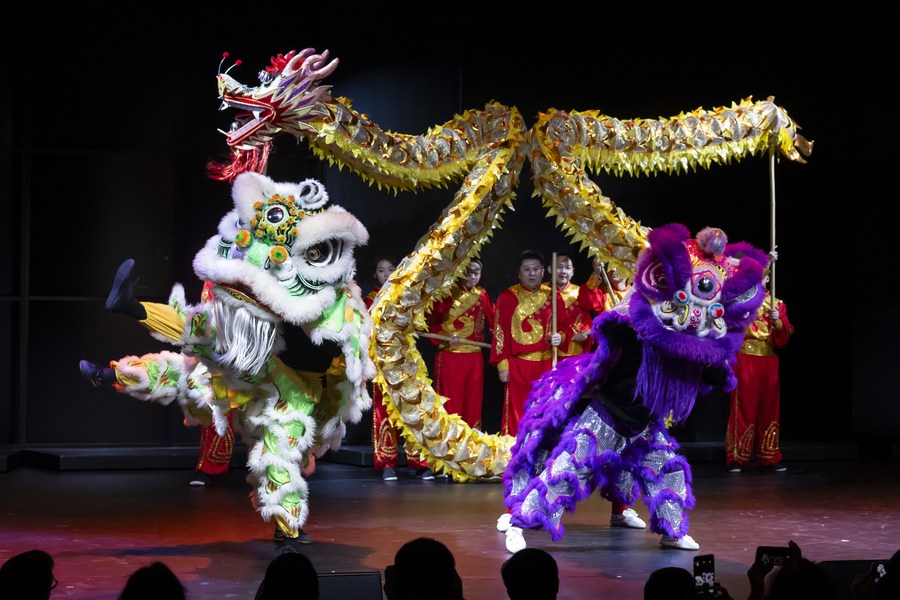Chinese dragon is not scary, says former senior UN official

People stage dragon and lion dance performances during a celebration ahead of the Chinese Lunar New Year, or the Spring Festival, in Helsinki, Finland, on Feb. 5, 2024. (Photo by Matti Matikainen/Xinhua)
Erik Solheim, the former UN under-secretary-general, said the dragon in Chinese culture is a symbol of good luck strength, health, and power.
OSLO, Feb. 9 (Xinhua) -- The dragon in Chinese culture is not a frightening creature, but a symbol of good luck, said a former top UN official in an interview with Xinhua this week.
"My Chinese friends wish their babies to be born in the Year of the Dragon," said Erik Solheim, the former UN under-secretary-general and executive director of the UN Environment Programme.
"I think the Chinese dragon culture is harmless, the Chinese dragon should not be scared of. Let's rather focus on how to show curiosity and respect for each other."
Solheim said that in China, the dragon is a symbol of good luck, strength, health and power. In European folklore, however, the mythical creature has a more ominous reputation.
"The dragon has a very central place in Chinese culture. It is also closely connected to the emperor and power. We Europeans more tend to see the dragon as a scary creature that may harm us, maybe inspired by dinosaurs," said Solheim.

This photo taken on Jan. 27, 2024 shows some ice lanterns displayed in Oslo, capital of Norway. (Photo by Chen Yaqin/Xinhua)
Referring to suggestions that the English translation of the Chinese dragon should be "loong" to differentiate the mythical creature from its Western counterpart, Solheim argued for clarity.
"Few people (in the West) know what a loong is. I believe it is better to explain the role of the dragon in Chinese culture," he said, emphasizing the importance of understanding and respect over fear of cultural symbols.
Solheim dismissed concerns that referring to Chinese people as "descendants of the dragon" could cause unease in the West, even amidst geopolitical tensions.
Instead, he advocated for focusing on mutual curiosity, respect, and collaborative problem-solving over the symbolism of national emblems. This approach, he argued, can help address global challenges such as environmental destruction, economic recovery and conflict.

Erik Solheim speaks during an interview at the United Nations Office at Nairobi, Kenya, on Aug. 31, 2018. (Xinhua/Wang Teng)
Recalling his extensive travels in China, Solheim expressed a particular fondness for historic cities like Xi'an, Kaifeng, Hangzhou and Suzhou, underscoring the deep impressions left by China's diverse provinces and culture.
A winner of the 2023 Chinese Government Friendship Award, Solheim said he has witnessed China's great achievements in developing ecological civilization over the years. The award highlights the importance of solidarity and cooperation among countries in the face of global challenges, he added.
"I love China, its history, culture, people, nature, food and recent achievements in development and environment," said Solheim.
Photos
Related Stories
- Chinese FM meets UNGA president
- China to enhance cooperation with UN for more just, reasonable global governance: VP
- UN Human Rights Council UPR Working Group adopts recommendations made to China
- President of 78th Session of UN General Assembly to visit China
- Nation has open attitude to UN human rights review
Copyright © 2024 People's Daily Online. All Rights Reserved.









